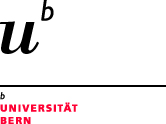Our research is mostly applied, often interdisciplinary and interprofessional, and serves to support new requirements and stimulate development. We cooperate with national and international partners.
We offer Masters, Dr. med. and PhD training opportunities and qualifications.
You can find our research publications here.
Please get in touch if you are interested in collaborative research or if you would like to commission a scientific study. Contact IML
Overall goals and activities
- We contribute practically and scientifically to the further development of medical didactics.
- We are committed to evidence-based principles of didactics and through evaluation and research contribute to improving knowledge in this area.
- We carry out research alongside innovative projects to improve the skills of medical and allied health trainees and professionals, and patient treatment
- We are driving the digital transformation in medical teaching by rethinking and developing software and processes from scratch.
- We create digital tools that enable the education and training of healthcare professionals with modern media and methods, worldwide….
IML research areas
Assessment
- Learning-oriented / formative assessment methods - such as workplace-based assessments (AbA), virtual patients
- Sanctioning / summative assessment methods such as training, licensing, advanced training and specialist examinations
- Combinations of formative and summative assessment methods including longitudinal approaches (“programmatic assessment”) and EPAs
- Research into new examination formats in education and training
- Optimization of standardized examinations
Evaluation
- Structured evaluation and surveys for qualitative and quantitative research purposes
- Development and implementation of scientifically sound evaluation tools for assessing interventions, courses and programs
Learning and Didactics
- Blended learning
- Increased efficiency in the acquisition of practical, clinical and communicative skills
- Research into the effects of feedback in training and education (medical skills, self-assessment)
- Learning effectiveness of (digital) teaching media and eLearning
- Effects of different learning media in different teaching formats and teaching environments
- Influence of simulation on sustainable learning and assessment
- Application and development of cognitive models for learning, teaching and assessmentEffects of interprofessional teaching on the acquisition of knowledge, skills and attitudes
- Peer teaching and peer assessment
Digital transformation
- Digital transformation and innovation in teaching and assessment
- Importance of usability of digital platforms for teaching and work
- User-centered design of digital applications
